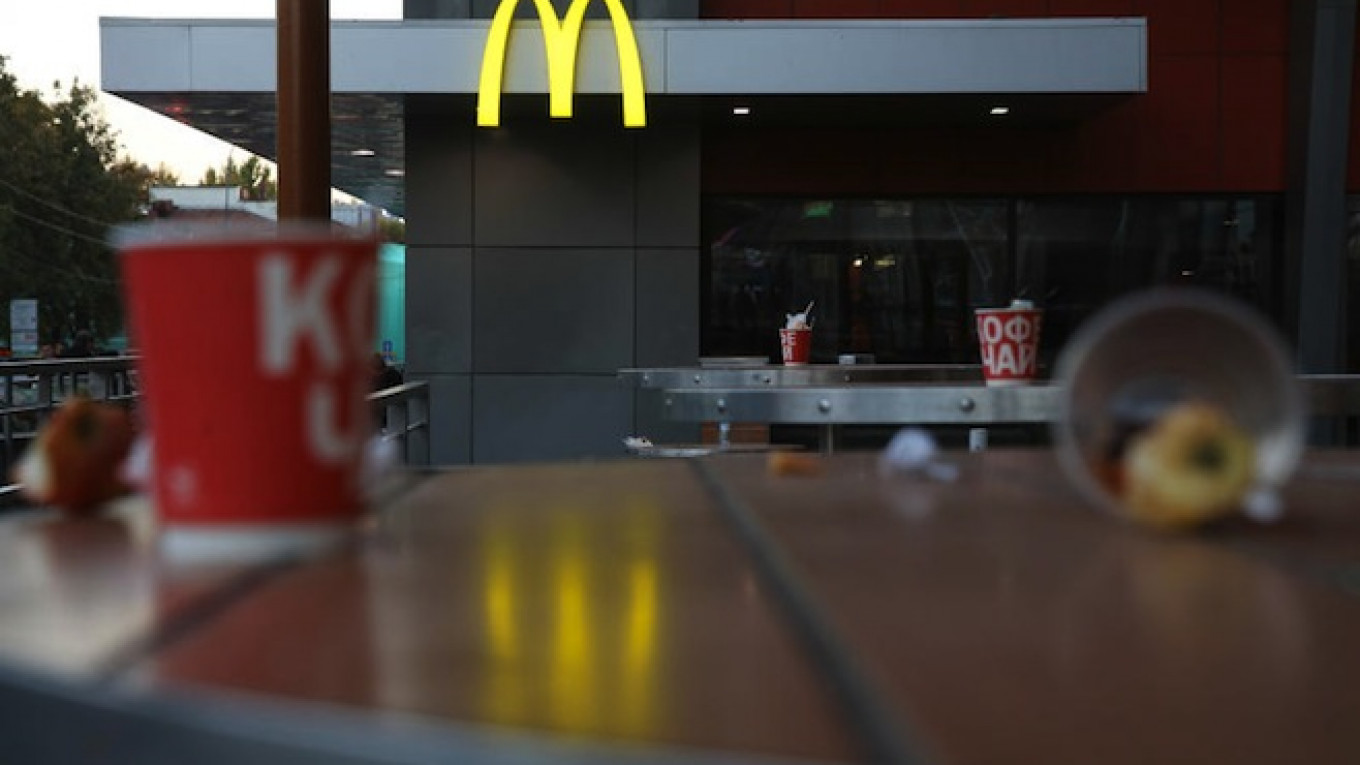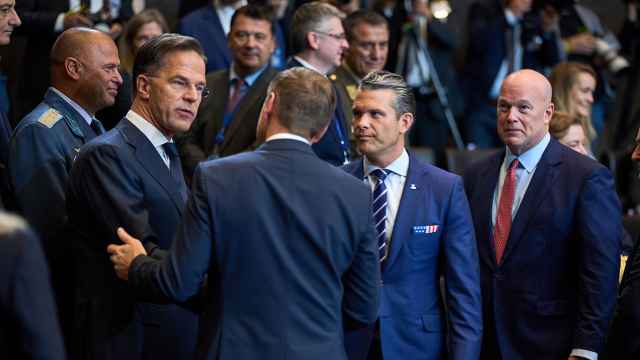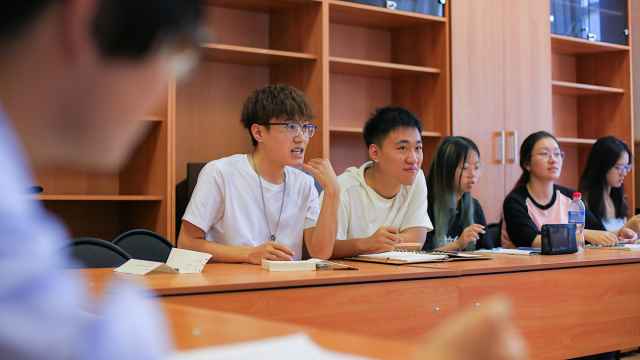Moscow's Tverskaya District Court has ordered restaurant chain giant McDonald’s to pay 200,000 rubles ($3,014) to Muscovite Ivan Sergeyev as compensation for using poetry composed by his grandmother Adelina Adalis in a television commercial without permission, the Interfax news agency reported Tuesday.
The court found McDonald’s guilty of using the poetry in the commercial without Sergeyev’s permission, who owns the rights to his grandmother’s work. Television channels who showed a promotional video were also declared liable in the suit.
Sergeyev — who initially sought a 5 million ruble ($75,350) settlement — was satisfied with the result, according to Interfax.
“All complaints about the material were removed from the broadcast,” a spokesman for Sergeyev said, adding that Sergeyev also demands that the television channels in question publish the court’s decision on their websites.
Spokespeople for the channels announced that the promotional video has been taken off the air, but Sergeyev’s spokesman said that the promotional video continues to be shown online.
The main issue discussed in the lawsuit was a sample of the song “The Last Poem,” specifically the lyrics, “It is not a dream, it is not a dream/It is all my truth/It is truth.” They were used in a commercial clip for McDonald’s titled “Egg and oatmeal (It is not a dream).”
The song was translated by Adelina Adalisa from poetry written by Bengali polymath Rabindranath Tagore, which was earlier used in a popular Soviet film.
A Message from The Moscow Times:
Dear readers,
We are facing unprecedented challenges. Russia's Prosecutor General's Office has designated The Moscow Times as an "undesirable" organization, criminalizing our work and putting our staff at risk of prosecution. This follows our earlier unjust labeling as a "foreign agent."
These actions are direct attempts to silence independent journalism in Russia. The authorities claim our work "discredits the decisions of the Russian leadership." We see things differently: we strive to provide accurate, unbiased reporting on Russia.
We, the journalists of The Moscow Times, refuse to be silenced. But to continue our work, we need your help.
Your support, no matter how small, makes a world of difference. If you can, please support us monthly starting from just $2. It's quick to set up, and every contribution makes a significant impact.
By supporting The Moscow Times, you're defending open, independent journalism in the face of repression. Thank you for standing with us.
Remind me later.






